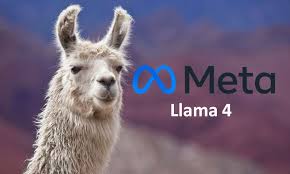The release of Meta's Llama 4 AI model has been overshadowed by allegations of benchmark manipulation, sparking a debate within the tech community about the integrity of AI performance metrics. Ahmad Al-Dahle, Meta's VP of Generative AI, has publicly denied these claims, which center around the assertion that Meta trained its Llama 4 Maverick and Scout models on "test sets" to artificially inflate their benchmark scores.
The rumors began circulating online, reportedly originating from a post on a Chinese social media platform by an individual claiming to be a former Meta employee. This post alleged that the Llama 4 team adjusted post-training datasets to achieve better benchmark results, suggesting that Meta prioritized optics over accuracy. The anonymous user further claimed to have resigned due to these practices.
The core of the accusation is that Meta used test sets, which are typically used for performance evaluation after training, during the training process itself. Training on test sets would be akin to providing the AI model with the answers before an exam, leading to inflated scores that do not accurately reflect real-world performance. Concerns were also raised about Meta's use of an unreleased version of Maverick for the LM Arena benchmark, further fueling suspicions of manipulated results. Social media quickly picked up on the allegations, with many accusing Meta of "benchmark hacking".
Al-Dahle responded to the controversy via a post on X, stating that the claims were "simply not true" and that Meta would never train its models on test sets. He acknowledged reports of "mixed quality" from users accessing the models through different cloud providers, attributing these inconsistencies to the need to stabilize implementations. Al-Dahle explained that the models were released as soon as they were ready and that the company is actively working on bug fixes and onboarding partners to improve performance. Meta has also stated that the variable quality that people are seeing is due to needing to stabilize implementations.
Despite Meta's denial, the allegations have fueled a broader discussion about the reliability of AI benchmarks. Critics argue that benchmark scores often fail to reflect real-world capabilities and that companies are incentivized to optimize for leaderboard rankings rather than genuine improvements in AI reasoning and reliability. The controversy highlights a persistent challenge in the AI industry: the potential for benchmark optimization to create a credibility gap, undermining trust in reported AI capabilities. Some experts are calling this a "crisis in AI evaluation".
This isn't the first time AI benchmark integrity has been called into question. Google's Gemini model, for instance, initially topped a key benchmark, surpassing OpenAI's GPT-4o. However, researchers later discovered that its performance significantly decreased when controlling for factors like response formatting. This pattern underscores the potential for manipulation and the limitations of relying solely on benchmarks to assess AI capabilities.
The Llama 4 models, including Maverick and Scout, employ a "mixture of experts" format and are powered by a massive 288-billion parameter "teacher" model called Behemoth. The new models use a teaching model designed to overcome scaling challenges such as the cost of simply making bigger models. Behemoth is not yet released as it is still in training. The models are available on Llama.com and Hugging Face, and Llama 4 will power Meta AI products including those in WhatsApp, Messenger, and Instagram.
While Meta has denied any wrongdoing and attributed performance inconsistencies to implementation issues, the controversy underscores the need for greater transparency and scrutiny in AI benchmarking. The incident also highlights the power of online communities to hold tech companies accountable and to raise important questions about the integrity of AI development practices. As AI continues to advance and play a larger role in society, ensuring the reliability and trustworthiness of AI performance metrics will be crucial.

















